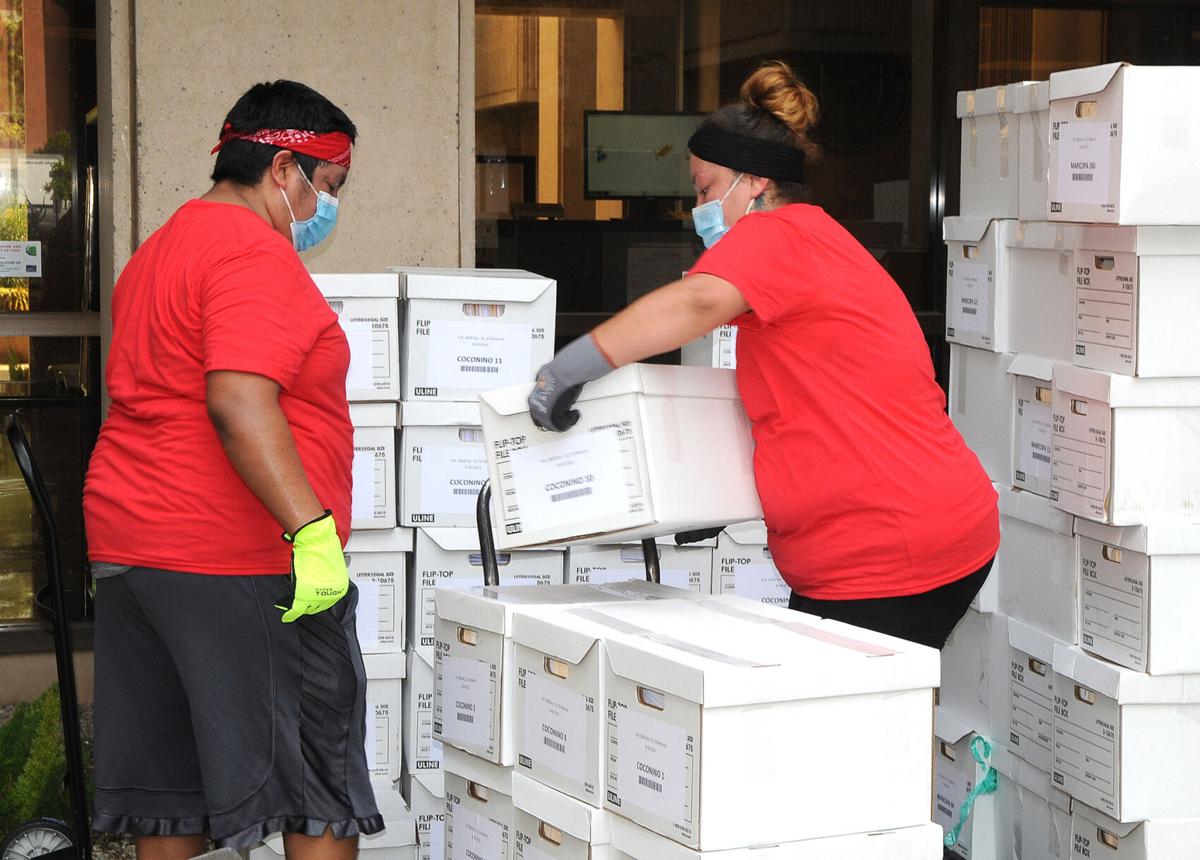PHOENIX — Republican lawmakers are moving toward asking voters to hobble their ability to write their own laws.
On a voice vote Monday, the Arizona House voted to put a measure on the 2024 ballot to alter existing constitutional provisions that can force a public vote any time backers get the signatures of 10% of the people who voted in the last gubernatorial election.
The 10% threshold would remain — but with a twist: Initiative organizers would have to get that percentage in each of the state’s 30 legislative districts to put an issue on the ballot.
So, if 50,000 of the people who voted for the governor came from a specific legislative district, then 5,000 of the signatures needed would have to come from that district. The same scenario would play out 29 more times across the state.
Failure to get the signatures in just one of those districts would prevent everyone else in Arizona from getting a chance to weigh in.
Rep. David Livingston, R-Peoria, said the measure, Senate Concurrent Resolution 1015, makes sense.
Right now, he said, initiative circulators can get all the signatures they need in Maricopa County. That’s 255,949 to put a change in statute on the 2024 ballot. He said nothing should go to voters unless there is a show of support in each of the 30 districts.
“Maricopa County would not be able to dictate a statewide vote,’’ Livingston said. “We need to recognize that counties out of Maricopa County matter. And this makes sure the other 14 counties matter.’’
Rep. Athena Salman, D-Tempe, said there’s another side to it. Consider, she said, a proposal being pushed by residents of Mohave County.
Right now, proponents are free to get the necessary signatures wherever they can. That would change if SCR 1015 is put into the Arizona Constitution.
“If they can’t convince the legislative district residents of Scottsdale that their issues is important enough to refer to everyone else in the state, they (the Scottsdale residents) get veto power before this thing even gets a vote,’’ she said.
“That’s wrong,’’ Salman said. “That is antithetical to the citizen initiative process.’’
Rep. Athena Salman, D-Tempe, voiced concern over SCR 1015, saying it could give a single Arizona district "veto power" over the rest of the state. Video courtesy of Arizona Capitol Television.
She said it amounts to asking residents of rural areas to “hand over that power to the voters of Maricopa County.’’
“Wow,’’ Salman said. “Talk about disenfranchising your own.’’
Rep. Oscar De Los Santos, D-Laveen, said it’s like saying no bill could come to the House floor unless at least one lawmaker from each district signed in support. He said the Republicans who control the Legislature would never approve giving such veto power to Democrats, who, in some districts, have both House seats and the Senate seat.
“Of course, we don’t do that here because it’s nonsensical,’’ De Los Santos said.
Rep. Oscar De Los Santos, D-Laveen, called SCR 1015 a "far-right MAGA extremist idea" before voting to reject it. Rep. David Livingston, R-Peoria, said the measure makes sense.
The measure was already approved by the Senate. A final House vote would put the change on the 2024 ballot where, as a constitutional amendment, it would have to be approved by a majority.
The proposal, pushed by Sen. J.D. Mesnard, R-Chandler, comes after years of efforts by Republicans to make it harder to get voter initiatives on the ballot and easier to kick them off.
The lines are being drawn between those who push ballot measures and don’t want the change and those who have opposed them.
The former category includes LUCHA, which was behind the 2016 measure to boost the state’s minimum wage from $8.05 and hour to the current $13.85.
Conversely, the Arizona Chamber of Commerce and Industry, which fought that initiative unsuccessfully, is in support of the new restrictions that the measure would impose.
This isn’t the only example.
Sandy Bahr, lobbyist for the Sierra Club, said people take to the streets with their petitions when lawmakers refuse to consider certain issues. That’s not new, she noted, citing the fact that it took an initiative in 1912 to grant women the right to vote in Arizona, eight years before the U.S. Constitution was amended.
“The Legislature would not deal with that, so it was referred to the ballot,’’ Bahr said.
More recently, voters approved a ban on leghold traps, snares and poisons on public lands in 1994 over the objections of hunters and some rural residents. Four years later, after lawmakers refused to take up the issue, foes of cockfighting got a ban on the ballot and got it approved.
And in 2006, voters decided that farmers can no longer keep pigs and and calves in gestation crates.
Groups, including the Arizona Farm Bureau Federation, have supported the additional signature requirement.




